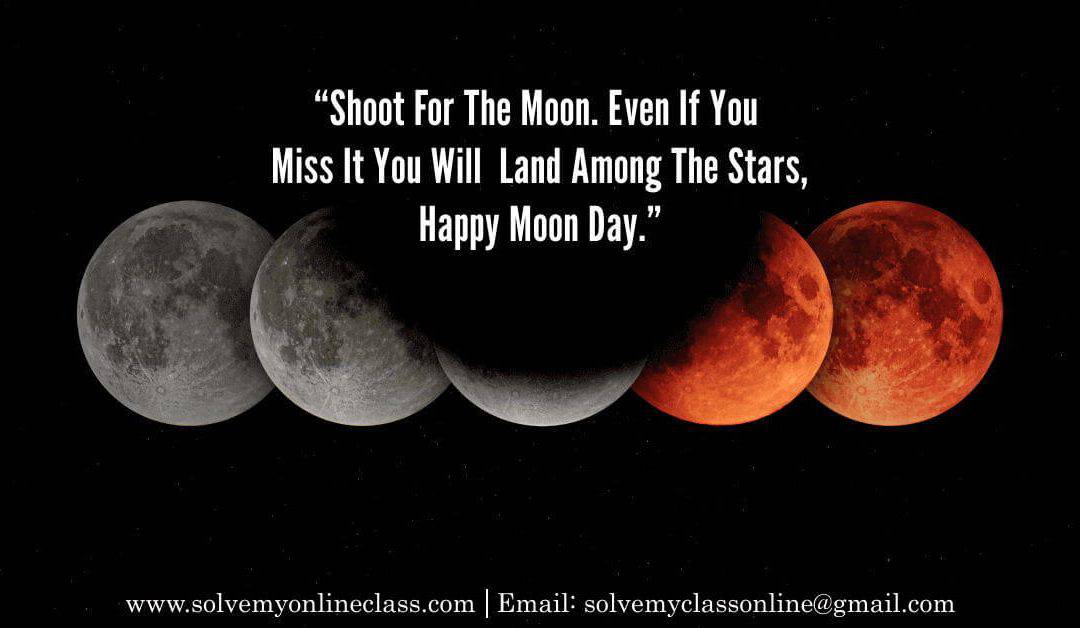Such International Moon Day is celebrated worldwide on 20th July, declared by the United Nations General Assembly every year. The Moon causes tides and creates a rhythm that has guided human beings for thousands of years, and the Moon has been the most significant and brightest object in the night sky. In addition, the Moon makes Earth a more livable planet by moderating the home planet’s wobble upon its axis and leading towards a comparatively stable climate.
The Moon has been the only world apart from Earth that human beings to date have visited. This International Moon Day is an annual event held by the general public and celebrated throughout the planet in cooperation with the United Nations Office for Outer Space Affairs (UNOOSA).
The history of International Moon Day
- The leading theory of the origin of the Moon has been that a Mars-sized body collided with Earth roughly 4.5 billion years before, and the resulting remains from Earth and the impactor build up towards forming the natural satellite and the new Moon found had been in a molten state.
- 20th July is celebrated as International Moon Day each year. It was on 20th July 1969 when Neil Armstrong became the first human being to land on the Moon.
- This particular day was declared in 1971 by the then President of the United States of America, Richard Nixon, to honor the historic lunar landing of Neil Armstrong and Edwin Aldrin.
- On 9th December 2021, the United Nations General Assembly adopted the resolution indicating that 20th July would be observed each year as International Moon Day.
The subject matter of International Moon Day
- The first International Moon Day would be presented by the Chair of IMD-G in the International Space Development Conference at Washington DC with the subject matter or theme, ‘Living in Space.’
- Such International Moon Day 2022 has been selected as the day to foster education awareness of the status and approaches concerning humanity.
- A lot of education along with traditional events for teaching human beings regarding sustainable Moon exploration along with the utilization of the Moon would be organized on 20th July 2022.
- The year 2022 will celebrate the first International Moon Day worldwide.
The essentialities of International Moon Day
- This Moon orbits the Earth at 2300 miles per hour, and the Moon is the second densest natural satellite after Jupiter’s moon lo.
- The weight of the human body decreases by 16.5 percent at the Moon. Since moon exploration strengths continue taking shape with determined plans, such a worldwide celebration could serve as a reminder of success at earlier times and as yearly evidence of the future attempt.
- The Moon has been the Earth’s only natural satellite and is around one-quarter the diameter of the Earth.
- This Moon has been the fifth most giant satellite in the entire Solar System. It is a huge planet and larger than any known dwarf planet.
The calmness of International Moon Day
- The existence of the Moon has been critical to the delicate balancing act which makes life on the Earth possible. The Moon possesses the most significant influence on the tides of the Earth; without it, the low and high tides shrink by approximately seventy-five percent.
- International Moon Day marks the anniversary of the first landing by human beings upon the Moon as a portion of the Apollo 11 lunar mission.
- These celebrations of International Moon Day would consider the triumphs and achievements of every state in the investigation of the Moon and raise public consciousness of sustainable Moon utilization and exploration.
The delightfulness of International Moon Day
- Such International Moon Day has been one of the monumental occasions in the entire world’s history and commemorates what some human beings feel has been the highest achievement of all times.
- Human beings could celebrate International Moon Day by reading the books and documentaries regarding the Apollo 11 mission in 1969 and those leading up to it.
- While celebrating this great day, it has been essential to invent the human beings behind the landing of the Moon.






